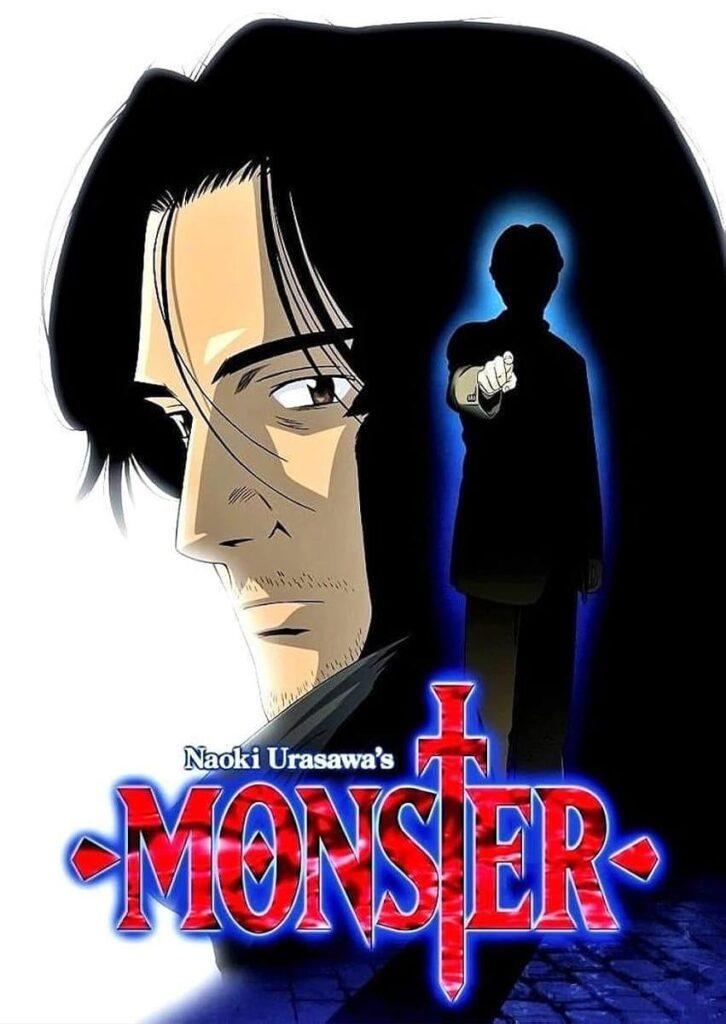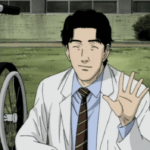Monster is one of those anime series that doesn’t rely on flashy visuals or over-the-top battles. Instead, it grips you with something far more unsettling — a slow, creeping sense of dread and moral complexity. This 2004 adaptation of Naoki Urasawa’s manga is a masterclass in psychological storytelling, blending crime, suspense, and philosophy into a haunting narrative that stays with you long after it ends.
Set in post-Cold War Europe, Monster takes its time unraveling the story of a man whose life is turned upside down by a single decision — the choice to save one life instead of another. But that choice, made with the best intentions, sets off a chain of events that becomes a long, harrowing chase across cities, borders, and the human psyche.
Dr. Kenzo Tenma – The Surgeon Who Saved the Wrong Life
At the center of the story is Dr. Kenzo Tenma, a brilliant Japanese neurosurgeon working in Germany. Early in the series, Tenma is forced to choose between saving the life of a young orphaned boy or that of a powerful politician. He chooses the boy, believing all lives are equal. But in doing so, he loses his status, his relationship, and his peace of mind.
The twist? That boy, Johan Liebert, grows up to become one of the most chilling and enigmatic antagonists in anime history — a manipulative figure capable of turning even the most decent people into murderers or victims. As the bodies begin to pile up and Johan’s terrifying influence spreads, Tenma is faced with the horrifying realization that he might have saved a monster.
What follows is not just a manhunt, but a moral journey. Tenma gives up everything — his career, his safety, his old life — to stop Johan. But along the way, he constantly questions himself. Can killing Johan make things right? Or does it simply turn Tenma into the very thing he’s trying to destroy?
The Darkness in Everyone
One of the most disturbing things about Monster is how it explores the fragility of morality. Almost every character — from detectives and journalists to war orphans and former spies — is caught in some kind of ethical conflict. Some give in to fear. Others embrace hatred. And a few try, in their own broken way, to hold onto their humanity.
Johan, for all his cruelty, doesn’t just kill — he exposes. He’s like a mirror that reflects the worst in people. And that’s what makes him so terrifying: he rarely gets blood on his own hands. Instead, he whispers, manipulates, and watches as others spiral into violence on his behalf.
But the series isn’t all bleak. Amidst the horror, there are moments of kindness, quiet redemption, and people trying to do good in impossible situations. These moments, though small, matter. They give the story weight. They show that even in a world where evil walks freely, the decision to protect, to care, or to forgive still holds power.
A Slow-Burn Thriller That Stays With You
Monster isn’t an easy watch. It’s 74 episodes of slow-burning suspense, with multiple plot threads, shifting perspectives, and long stretches where the line between good and evil blurs. But that’s part of what makes it so unforgettable. It demands attention. It rewards patience. And it leaves you thinking long after the final credits roll.
In the end, Monster is not just about catching a killer. It’s about understanding what drives people to become who they are — the scars they carry, the lies they tell themselves, and the truths they fear most. It’s about guilt, responsibility, and the terrifying possibility that monsters aren’t born — they’re made.
If you’re looking for a psychological anime that treats its viewers like adults and isn’t afraid to stare into the abyss, Monster is essential viewing.



